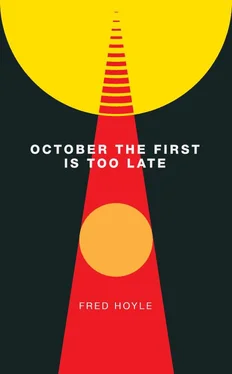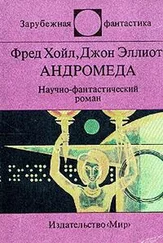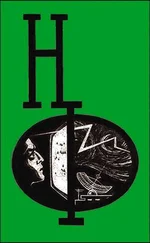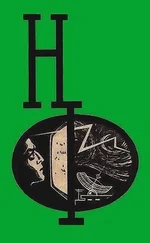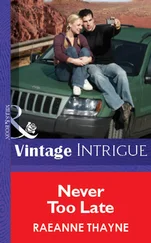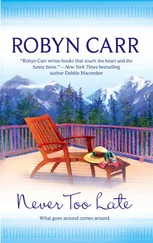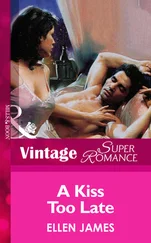It took a lot of experimenting before I had the feel of it. Indeed it would be weeks or months before I would be able to get maximum effects out of this new system. In a sense it was a little like switching from piano to organ, in that the sound stopped as soon as you took your finger off the key. Unlike the organ, however, you could get a surge of tone in the middle of a note, like the thrill a violinist can produce.
When I had got the hang of individual notes I found the general tonal structure had interesting differences and interesting possibilities. It was sharper, less vague than a piano. This seemed to come from control over high harmonics particularly in the treble. The general effect was a greater clarity and a more legato quality. The harsh percussive effects of the piano could not be reproduced, they were quite lost. I found by adjusting the general output control that I could either play with the usual kind of heavy pressure, the strong finger effect I was normally used to, or I could go over to quite light fingering as one does on a harpsichord. Either way I could get the same big volume of tone. This made it possible, using light fingering, to play passages both very fast and very loud.
I had to be almost literally pulled away from this new box of tricks. Apparently a meal was ready. Incredibly it was set on the floor. The girls had made all kinds of indentations to hold the various articles and dishes. The colours of the food stood out sharply against the dark blue flooring material. It looked exactly as if a bed of flowers had been laid out. The effect was so remarkable that I felt it could not be due to chance.
It was all entirely vegetarian food. They didn’t eat animals, John had said. Yet you wouldn’t have known it. The tastes were there. In fact my only problem was there seemed to be too many tastes, almost as if you were getting the whole of a large menu all at once. The wine was very good. Apparently a span of ten thousand years made little difference so far as wine was concerned.
‘How do you like your little present? You haven’t thanked us for it yet.’
‘He is exactly like a child with it,’ said John with a tinge of jealousy.
I pressed my advantage. ‘You said you had two presents.’
‘None for me,’ muttered John. At this the girl Neria stroked his face:
‘There are better presents for you than a little black box,’ Neria smiled.
I saw John was going to have his troubles, and especially because of the way the translation system operated. It suddenly struck me how much the pronunciation of English by the girls had changed. It was now very much more like normal everyday English. My curiosity flowed over and I had to ask how it was all done, although I realized we were pretending that nothing seemed unusual to us.
‘Oh, it is really very simple,’ said Melea.
‘I would not have thought you would have had any difficulty with that,’ grinned the other girl.
John took up the challenge. ‘Let me make a guess. First you have a system of language translation set up in a computer. As well as grammatical rules, synonyms, and so forth, you have a library of mouth sounds. When a word is spoken it is analysed for its sounds, taken to pieces. Then it is put through the translation procedure. The same is done for the translated word, in reverse. It’s a matter really of having sounds as well as a dictionary. But how did you manage to change the pronunciation as you went along?’
The same thing was puzzling me.
The girls laughed: ‘Your own pronunciation was analysed, of course. As you spoke each word, the sound formation was taken to pieces. After that, when the same word was used in the translation of something that we said, it was put together in the way you had used. Now do you understand?’
John nodded, and I think I got a pretty good idea myself.
But there was still one thing that worried me. ‘How do you get the voices to sound so right?’
‘Because each of us has a library in our computer of the way our voice sounds. Not just in our own language, but of all the sounds that can be made with the human voice. By doing this our voice could be translated into any language whatever, even though we ourselves could not understand a word of it.’
‘You haven’t a library of our voices?’
‘No, we are not really using your voices at all. We’ve used the voice of one of our own people, not anybody we happen to know well personally. Otherwise it would be very strange.’
By now we had finished the meal. I was again astonished by the speed with which it was all cleared away. Just the same carpet-sweeping procedure that John had used. The really striking thing was when the white strip reached the position of the piano, or rather the piano-like box of tricks, the whole thing lifted up off the floor, and the white strip went underneath it. Thirty seconds and the room was clear. Dinner was finished.
Both girls went out. Several minutes later they came back carrying two large parcels which they put on top of the piano. With smiles they bowed at me and said: ‘They’re yours.’
They were the most normal articles I had yet seen, apparently straightforward parcels, wrapped in what looked uncommonly like paper. I undid the first one. It was just a large metal disc about two feet in diameter and an inch thick.
‘Handle it very carefully, please.’
John came over: ‘It must be hollow, or layers of metal. Otherwise it would be much heavier.’
It had seemed heavy enough to me. I undid the other parcel. Here there were three discs of the same diameter but less thick. The girls were watching us with amusement. John and I talked about it for some time. It was obviously connected with some sort of electronic device. But what? They were like huge, weighty gramophone records, the sort of thing a stone-age man might have produced, only they were made of bright metal not stone. We gave it up.
Melea took the biggest of the discs, while her friend went to the keyboard on the wall. I was beginning to wonder what these people would do without their walls and floors, when a metallic arm moved smoothly and slowly out of the wall. Melea fitted the disc into it and the whole thing retreated completely from view.
There was a lot to be said for not cluttering up the room with chairs and tables and a hundred and one other articles. The room might have been expected to look bare but it didn’t. This was due to the shape and the colours which somehow conveyed the impression of being out-of-doors. I realized what it was that had struck me as being so queer in the first place. Normally when you go into a building you change your sense of scale. Rooms that would seem ridiculously small if they were out-of-doors become tolerably large. What happened here was that you didn’t make any change of scale, you had the same sense of size as you have in the open air.
I just had time for these reflections before the music started. I was transfixed at the first chords. It was the beginning of the Mass I had taken three months of the winter to write. It was all there, the whole orchestra. At least it was very nearly the orchestra as I knew it. Very nearly, but not quite, the harmonic balance of the individual instruments was a little different. The music flowed on and I lost all sense of calm judgement. Listening to one’s own music is a little like listening to one’s own voice, you do it with a sense of wonder, fascination, and horror. You can’t believe it really sounds like that. The wonder now was that the instruments were all there, the notes all correct. I could detect no mistake of pitch or of timing. Indeed the timing was if anything too accurate. When the chorus came in the words were English. They were my own words.
Now we were at the section I had played in the temple, the section I had conceived of in an agony of mind. It held me now, playing on my emotions as if I, its creator, were no more than a keyboard. The pain and tragedy dissolved at last into sunlight and the work came to an end, after what seemed like a vast span of time. It was I suppose about two hours.
Читать дальше
